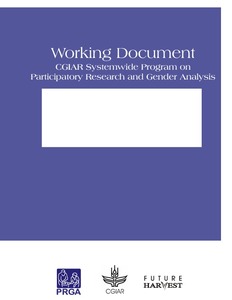Understanding patterns of resource use and consumption: a prelude to co-management
For co-management of conservation areas to be effective, detailed information on local people's use of natural resources is essential. One method to obtain some of that information, a household record keeping study, is given. It is simple to implement and analyse, and provides useful, quantitative data on resource use and income levels. The method and present data derived from three studies of Melayu and Iban communities in and around the Danau Sentarum Wildlife Reserve in West Kalimantan, Indonesia, are described.



